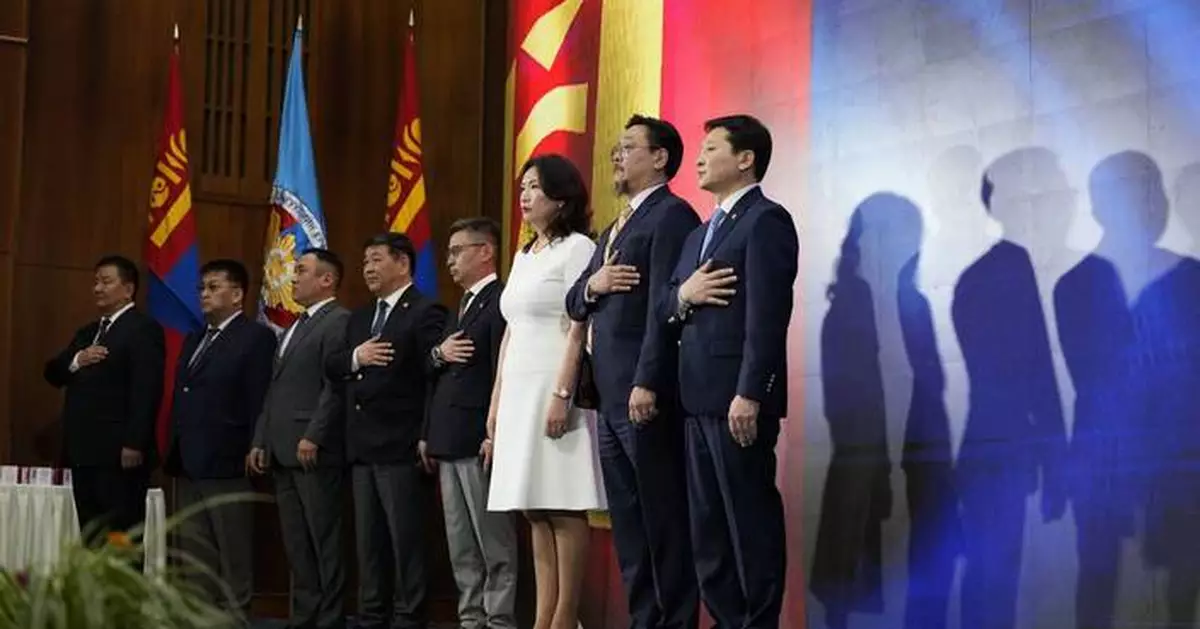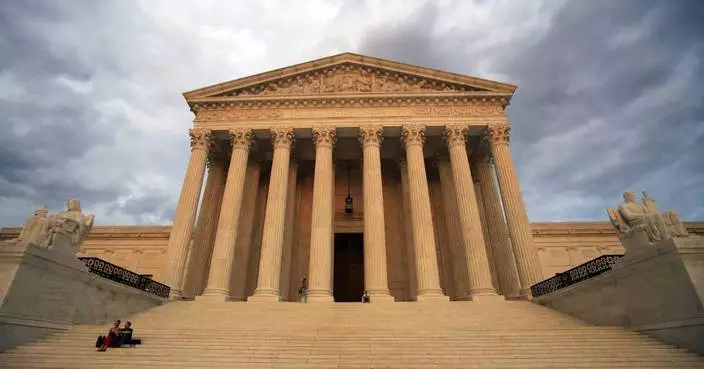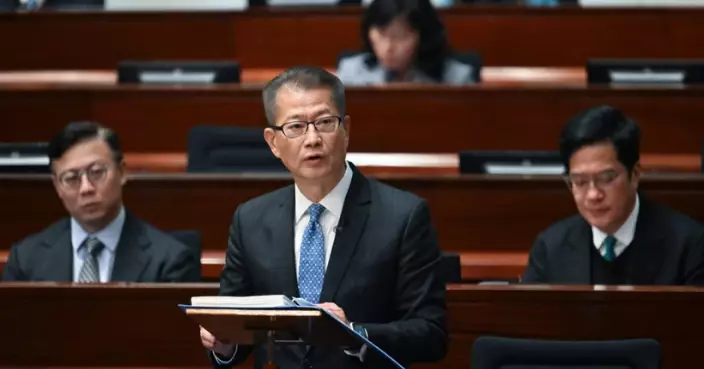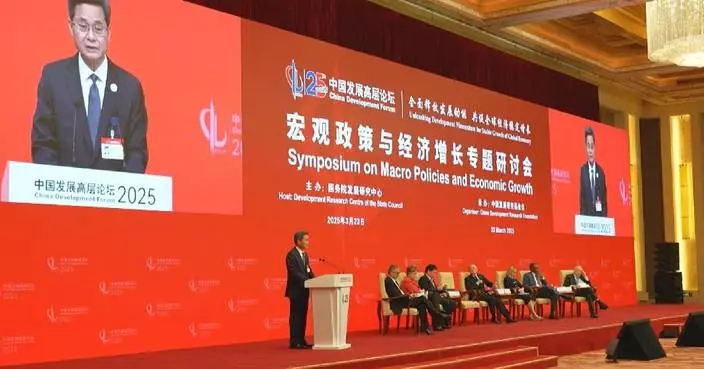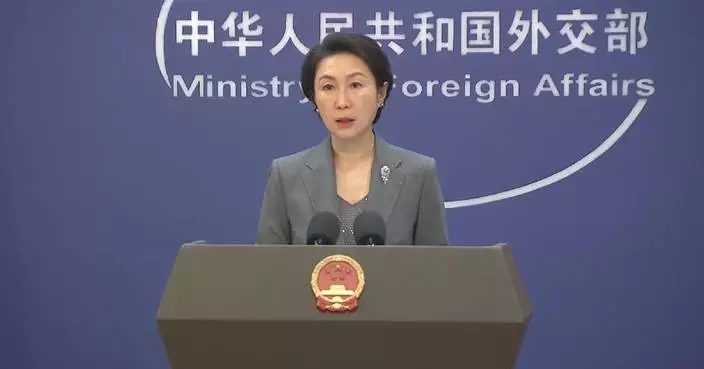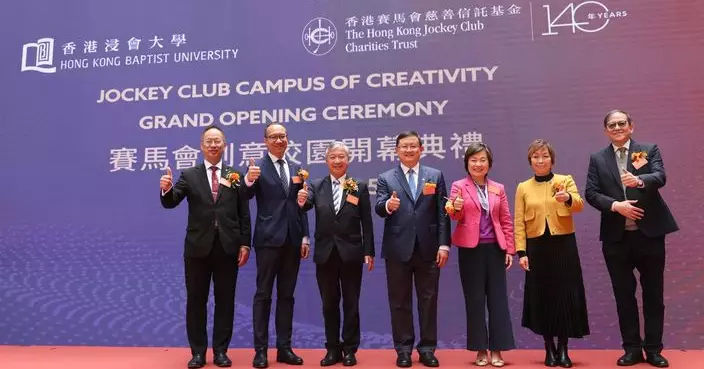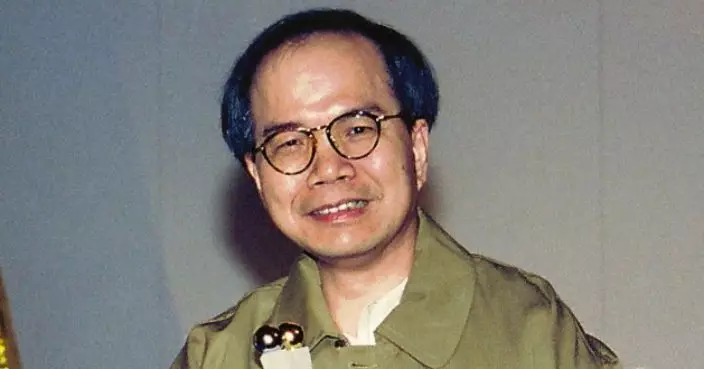ULAANBAATAR, Mongolia (AP) — Mongolia's ruling party won a much smaller majority in a parliamentary election than it had held previously, according to official results released on Monday, raising the possibility of a return to a coalition government for the first time in eight years.
The Mongolian People's Party took 68 seats in the 126-seat body in Friday's nationwide vote, while the opposition Democratic Party won 42, according to a certified list of winners posted on the General Election Commission website. The remaining 16 seats were divided among smaller parties.
The commission presented the final results to the country's president on Monday shortly before handing out membership cards to the newly elected lawmakers at a ceremony in the State Palace, a grand building in the capital city that houses the parliament chamber and the offices of the president and the prime minister.
The ceremony, held in a palace auditorium, was a time for hearty handshakes and backslapping embraces as lawmakers congratulated each other on their victories. As their names were read out, they went on stage one-by-one to receive a card in a folded, wallet-size protector that certified them as members of parliament.
The People's Party won overwhelmingly in the previous two elections, taking 62 of 76 seats in the previous race in 2020, and ruled the country singlehandedly. A constitutional revision last year added 50 seats to the parliament.
Mongolian media reports said that the ruling party was discussing formulas for a coalition with both the Democratic Party and the HUN party, which won eight seats. Cabinet positions would be divvied up among the coalition members, the reports said. There was no official confirmation of the discussions.
The last coalition government in Mongolia was one led by the Democratic Party from 2012 to 2016. After eight years of one-party rule, this year's election showed a desire among voters to return to a more balanced system.
Ahead of Monday's ceremony, a former Democratic Party lawmaker who started her own party two years ago held a news conference to criticize allegedly unfair campaign tactics by the People's Party.
Oyungerel Tsedevdamba, the founder and leader of the Civic Unity Party, accused the People's Party of using state power and access to a government database and employees to give itself an unfair advantage in the race.
“The Civic Unity Party cannot and will not congratulate the Mongolian People’s Party for its victory,” she said. "It’s not real victory. ... It’s a result of intimidation and repression.”
She spoke with five other candidates from her party, which did not win any seats in the election.
Mongolia transitioned to democracy in the early 1990s after more than six decades as a one-party communist state. The vast and sparsely populated landlocked country sits between China and Russia.

Ruling Mongolian People's Party lawmaker Damdinnyam Gongor is congratulated as he attends a ceremony to handout Parliamentary membership card to newly elected lawmakers at the Mongolian Government Palace in Ulaanbaatar, Mongolia, Monday, July 1, 2024. (AP Photo/Ng Han Guan)
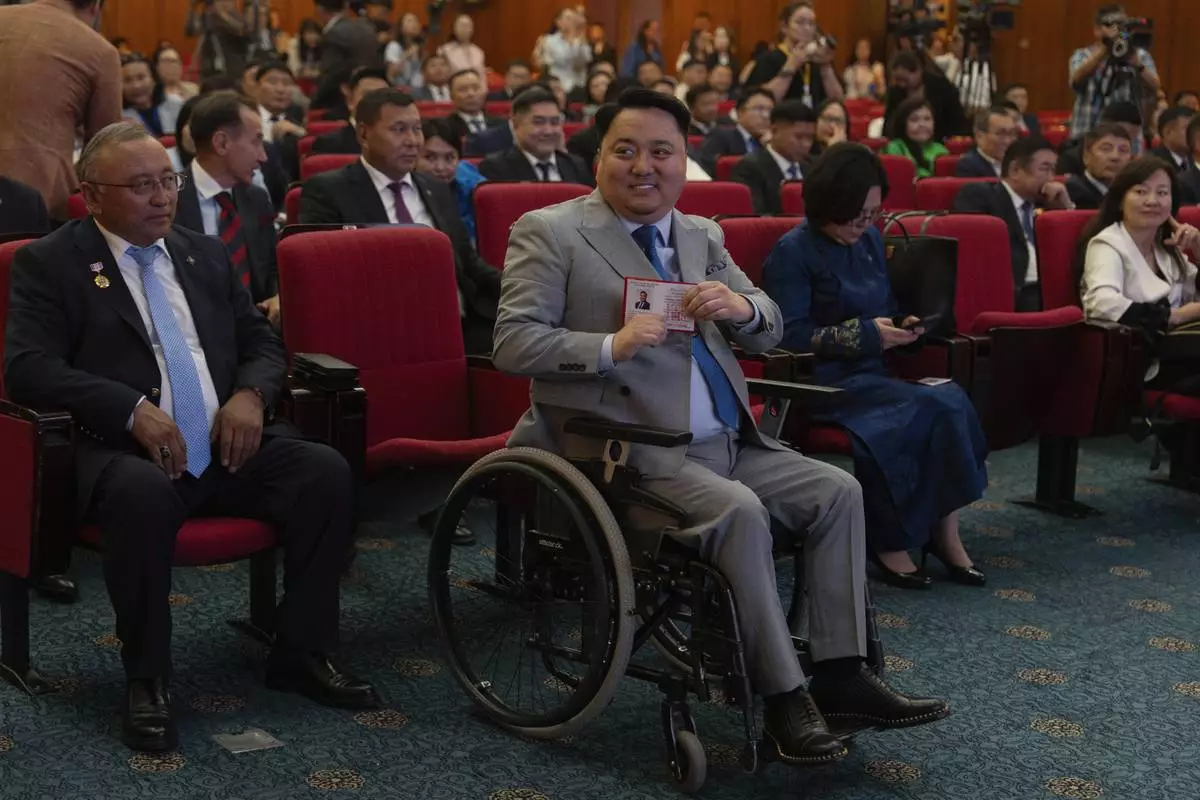
Newly elected opposition Democratic Party lawmaker J. Bayasgalan holds up his Parliamentary membership cards during a ceremony at the Mongolian Government Palace in Ulaanbaatar, Mongolia, Monday, July 1, 2024. (AP Photo/Ng Han Guan)

Journalists watch as newly elected lawmakers walk on stage to receive their parliamentary membership cards at the Mongolian Government Palace in Ulaanbaatar, Mongolia, Monday, July 1, 2024. (AP Photo/Ng Han Guan)
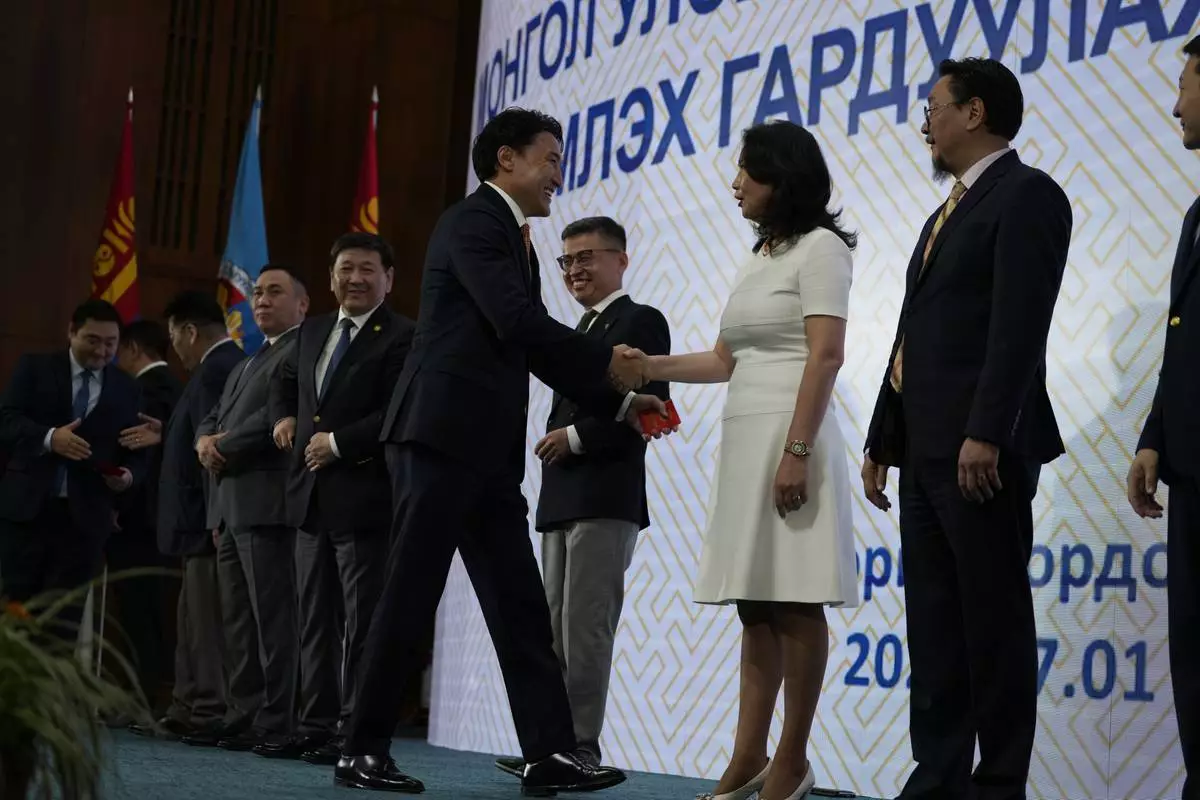
Ruling Mongolian People's Party lawmaker Damdinnyam Gongor is congratulated on stage upon receiving his Parliamentary membership card handed out to newly elected lawmakers at the Mongolian Government Palace in Ulaanbaatar, Mongolia, Monday, July 1, 2024. (AP Photo/Ng Han Guan)
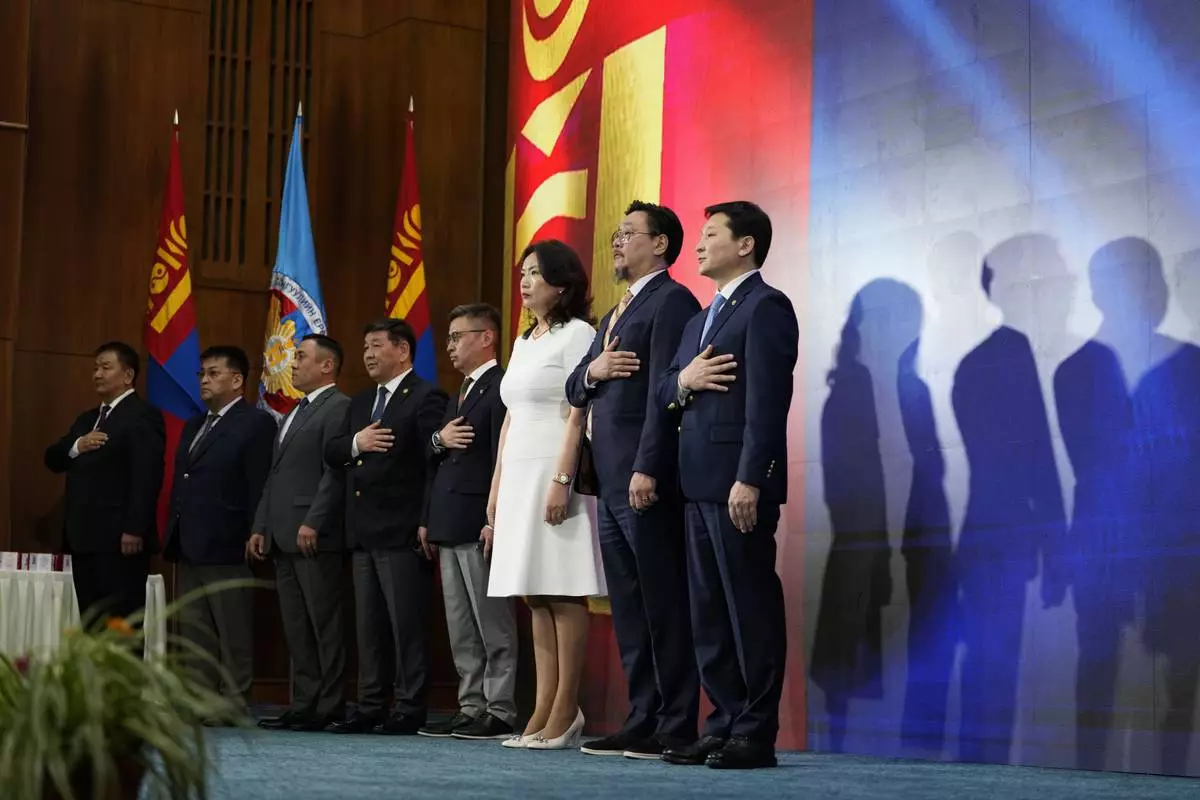
Attendees stand for the anthem during a ceremony to handout Parliamentary membership cards to newly elected lawmakers at the Mongolian Government Palace in Ulaanbaatar, Mongolia, Monday, July 1, 2024. (AP Photo/Ng Han Guan)


